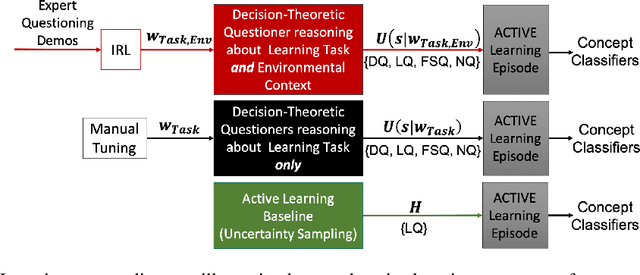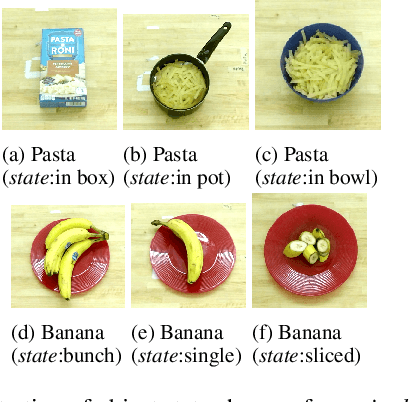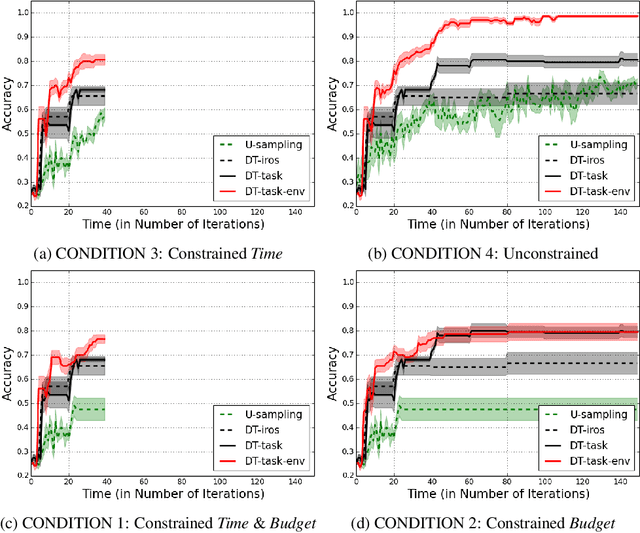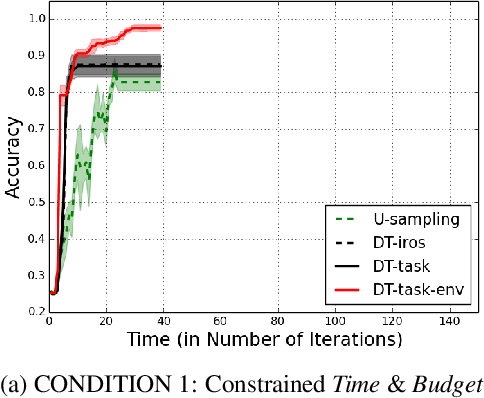Active Learning within Constrained Environments through Imitation of an Expert Questioner
Paper and Code
Jul 01, 2019



Active learning agents typically employ a query selection algorithm which solely considers the agent's learning objectives. However, this may be insufficient in more realistic human domains. This work uses imitation learning to enable an agent in a constrained environment to concurrently reason about both its internal learning goals and environmental constraints externally imposed, all within its objective function. Experiments are conducted on a concept learning task to test generalization of the proposed algorithm to different environmental conditions and analyze how time and resource constraints impact efficacy of solving the learning problem. Our findings show the environmentally-aware learning agent is able to statistically outperform all other active learners explored under most of the constrained conditions. A key implication is adaptation for active learning agents to more realistic human environments, where constraints are often externally imposed on the learner.
 Add to Chrome
Add to Chrome Add to Firefox
Add to Firefox Add to Edge
Add to Edge